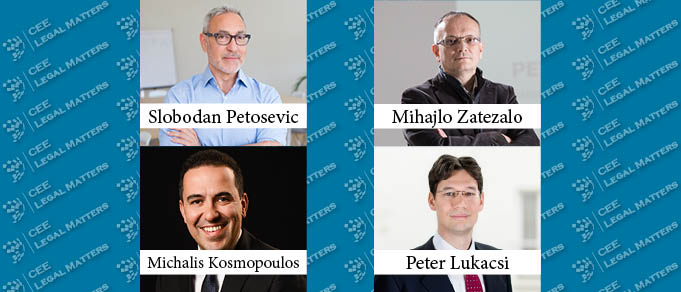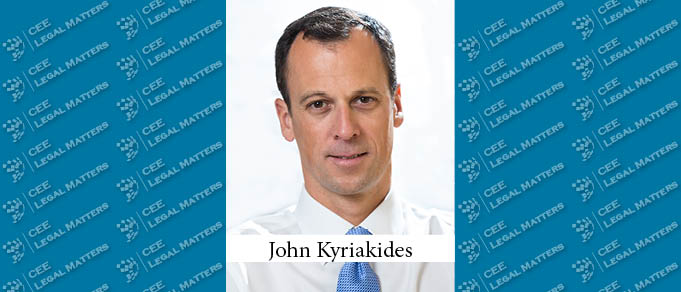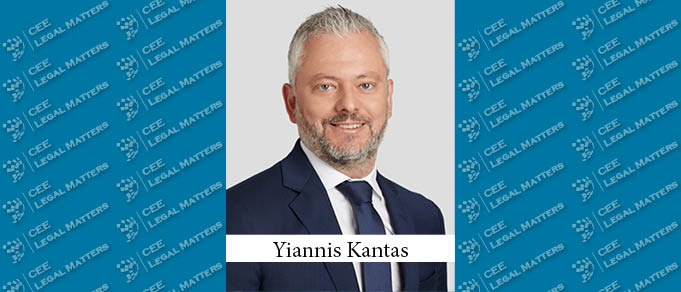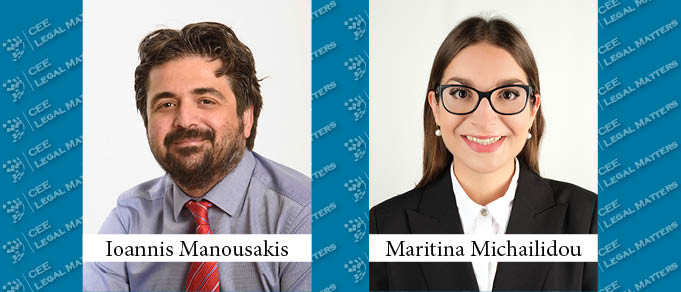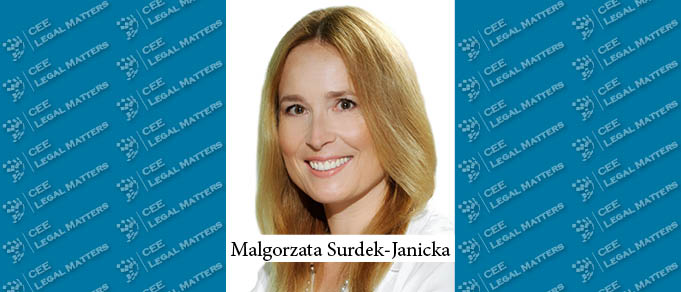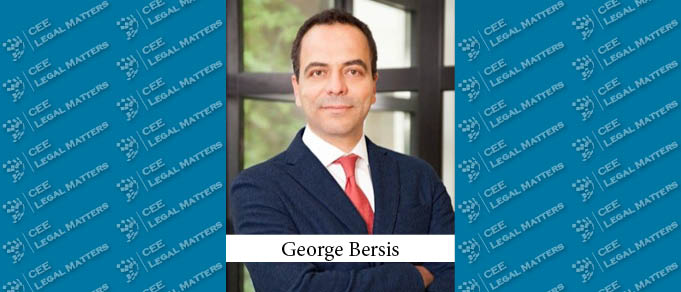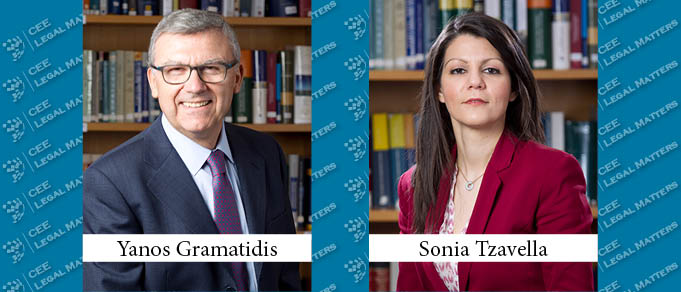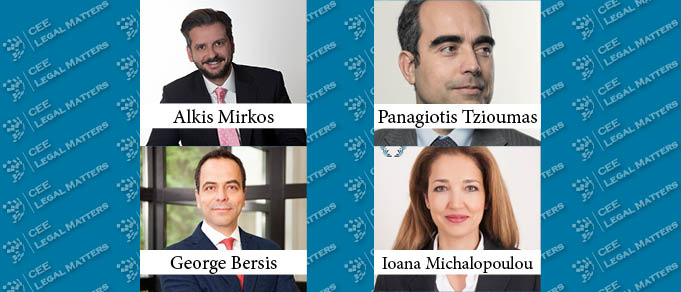Practicing IP has always been a tricky matter, given the complexity and the diversity of this area of law. We reached out to experts from several IP-focused law firms – Hungary’s SBGK, Serbia’s Petosevic Group, and Greece’s Drakopoulos – to learn more about their origins, specializations, structures, and operations.
Guest Editorial: A Brief Insight Into the Greek Legal Market
The legal profession in Greece has changed and been upgraded in recent years in the context of providing legal services and support across a spectrum of economic, social, and technological developments. Modern lawyering is directly linked to the needs of the client in very specific areas (such as economy, energy, health, immigration, personal data, and artificial intelligence). In the past 30 years, Greece has witnessed the establishment of the institution of law firms, the transition to a new era of cooperative action, and the gradual abandonment of the legal office as the sole dominant model of legal practice. Law firms that form a structured group and provide a comprehensive package of services operate in a dynamic manner, evolving in line with market requirements. This is also a guarantee for young lawyers who seek better working conditions, remuneration, and career prospects.
Yiannis Kantas Makes Partner at Koutalidis
Former Senior Associate Yiannis Kantas has been promoted to Partner with Koutalidis Law Firm's Public Procurement Law practice.
Lydia Sofrona Makes Partner at Koutalidis
Lydia Sofrona has become a Partner at Koutalidis, in the firm's Tax Law practice.
Real Estate Laws and Regulations in Greece
Contributed by Alexiou Kosmopoulos Law Firm.
Greece: Legislative Interventions to Boost Penetration of RES Projects on Greek Electricity Market
The end of 2020 saw landmark legislative interventions in Greece, mainly aiming to create the prerequisites for the widest possible adoption of the EU Target Model (the creation of a single EU energy market) and boost the penetration of renewable energy sources, in a regulated and rational way. According to the government, these interventions “establish the framework for a more rational operation of the sector, on more competitive terms, to the benefit of the consumers and of the Greek economy in general.”
Catherine Karanikola Joins YNV Group as CLO
Catherine Karanikola has joined the YNV Group as Chief Legal Officer in Greece.
The Buzz in Greece: Interview with Helen Alexiou of AKL Law Firm
With the country experiencing one of its record-breaking tourism seasons and the business sector booming, there are a lot of reasons to see the sun shining brightly in Greece, even with summer at an end, according to AKL Managing Partner Helen Alexiou.
Personal Data Protection in Greece
This article sets out the legislative and regulatory framework governing the protection of personal data in Greece.
Greece: Legal and Regulatory Aspects of Greek Pharmaceutical Co-Promotion and Co-Marketing Agreements
For at least the last 15 years, co-promotion and co-marketing agreements between pharmaceutical companies have been valuable instruments for cost-effective marketing of pharmaceutical products. Both types of agreement are used both locally and globally to effectively allocate the skills and expertise of marketing teams based on product type, therapeutic category, and product maturity.
The Buzz in Greece: Interview with Nassos Felonis of Bahas, Gramatidis & Partners
Even with the delta variant being prominent in Greece, the country seems to be on an upward trajectory, according to Nassos Felonis, Partner at Bahas, Gramatidis & Partners.
ICC International Court of Arbitration Appoints Malgorzata Surdek-Janicka as Vice-President
CMS' Malgorzata Surdek-Janicka has been appointed as Vice-President of the International Court of Arbitration at the International Chamber of Commerce in Paris. Aside from Surdek-Janicka, 33 lawyers from CEE were appointed as members and alternate members of the court.
The Buzz in Greece: An Interview with George Bersis, Co-Managing Partner of PotamitisVekris Law Firm
With the summer kicking off another (tourism) season for Greece, PotamitisVekris Co-Managing Partner, George Bersis, shares with us how this Mediterranean country’s economic outlook is shining brighter and brighter.
Greece: The Real Estate Market During the Crisis and its Revival Over the Past Years
Greece’s real estate sector has always contributed significantly to the development of the nation’s economy. It has to be noted that Greece is a country where home ownership rates are among the highest in Europe. Also, real estate was traditionally considered by most Greeks as a rather safe investment. Thus, real estate is favorably affected by tourism, which is another huge sector of the Greek economy. All of these factors led to the sector’s remarkable growth, which peaked in 2007.
A Remote Possibility: Telecommuting During COVID-19
The COVID-19 crisis that has afflicted Europe throughout this unusual year has necessitated significant changes to the way lawyers work and communicate with and serve their clients. To find out how these changes played out in Greece, we spoke with Yanos Gramatidis, Head of Government & Privatization, and Betty Smyrniou, Head of Labor and Social Benefits and Aviation at Bahas, Gramatidis & Partners.
Expat(s) on the Market: An Update
Over the course of our seven years, CEE Legal Matters has interviewed most of the British lawyers working on the ground in Central and Eastern Europe as part of our recurring “Expat on the Market” feature. We reached out to them recently and asked them to bring us up to speed on what they’re doing and/or share their thoughts on the ramifications of Brexit or the ongoing COVID-19 crisis.
Greece Plays the Long Game
The novel coronavirus has sent markets into a tailspin and forced the scrapping of many plans for this business year. Commercial law firms, their businesses closely tied to the way economies ebb and flow, have been forced to adapt. This global phenomenon is in some ways particularly poignant in Greece, which was finally, after a decade of darkness, showing signs of returning to the light. Commercial Greek law firms, excited about the prospects of a highly-anticipated economic recovery, have discovered they’ll have to wait just a little bit longer. Still, they insist, good times are just around the corner.
Greece: Artificial Intelligence & Privacy in the Time of Covid-19
The White Paper on Artificial Intelligence published on February 19th by the European Commission presents some important building block policy options to enable the trustworthy and secure development of artificial intelligence in the EU, fully respecting the presiding values and the fundamental rights of its citizens. The enormous volume of data which has already been generated and that yet to be generated constitutes an opportunity for Europe to position itself at the forefront of global AI policy. The use of AI brings both fears and uncertainties: on the one hand, citizens fear they will be left powerless against the information asymmetries of algorithmic decision-making, while on the other, companies are truly concerned with legal uncertainty.

